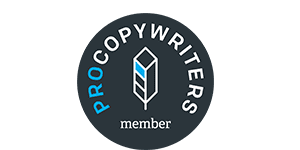UPDATED Oct 2022
Since Google released the information about the ‘helpful content’ algorithm, there has been a lot of chatter about what this will mean to SEO. Until things settle down it will probably be impossible to accurately estimate the effect all this will have on SEO, however, one thing is clear. Google wants you to have people first content for your site.
UPDATED OCT 2022
Having followed this for a few weeks now it would seem that as the roll out continues it is beginning to have a considerable effect on some sites. We are seeing increased enquiries here at your-copywriter.com from SEO and Website builders looking to partner with us as a trusted supplier for their new copy. Engagement and helpful copy are becoming increasingly important. In fact, one recent post in a google forum was saying that their SEO results were dropping by as much as 90% in some cases. If you want to talk to us about your copy, just book a slot through our calendly link <Click here to book an appointment>
___________________________________
 UPDATE 2 – If you are booked on to the preview session of our introduction to copywriting training course ‘creative and practical copywriting’ we will now be covering helpful content. If you haven’t booked then you can see the details here <download information sheet> but any remaining seats at the £25 review price will be sold first come first served, sorry.
UPDATE 2 – If you are booked on to the preview session of our introduction to copywriting training course ‘creative and practical copywriting’ we will now be covering helpful content. If you haven’t booked then you can see the details here <download information sheet> but any remaining seats at the £25 review price will be sold first come first served, sorry.
To check availability email: [email protected]
Once these 10 review places are sold at the £25 price, the course will then go on general sale at full price, sorry again… but we need to eat!
___________________________________
What is ‘people first’ content?
People first content is something we have always championed here at your-copywriter.com because a good story does not come out of SEO. Good content on the other hand does come out of the story. So, practically speaking, people first content is unlikely to be created from keywords, but it will almost certainly feature them because they still matter in context.
What Google seem to be asking for with the helpful content update is that content is targeted to the reader, not the google rankings. The approach it seemingly wants is that people are the first priority, not the SEO. If the AI feels that your copy is targeting SEO, and has little value beyond getting site traffic, it will perform less well.
Let’s backtrack a little before we go any further and remember what Google is there to do. You, the user, type in your question or keyword and Google scuttles off around the internet and brings you back an answer or relevant content. So, we have our first point to remember
People first rule 1:
Good content is helpful because it answers a question or provides the information the user wanted.
What the update that is rolling out over the next couple of weeks appears to be looking to do is go back to this as the driver for your content. So, make your content useful.
One other area that is mentioned quite frequently in their update is the problem of repeated information. To me, it seems that there is a very clear undercurrent that they want you to do more than collate or repeat. So, where you could, for example, grab a series of sales notes about a product and make a blog this could now be seen as repeating information.
People first rule 2:
You need to have originality in your copy and cutting and pasting probably won’t do the job. This is unlikely to mean that everything must be an entirely original idea, (Let’s face it, there are billions of humans all tippy tapping away like infinite numbers of monkeys, so I doubt Google will be expecting everyone to create Hamlet), but it will probably want your own twist. A development. Something you have added that is good reading and expands on or contextualises the original topic in some way.
Google wants your business to do what it says on the tin. If you are a jam maker, then it will expect your content to be about jams. If you decide to run content about Marmite to attract marmite eaters, then you could have a problem.
People first rule 3:
Do what you do and don’t play with attracting footfall by trickery. Google wants your jam-based site to be about jam. So ‘Jam or Marmite – Which is best on toast’ is probably going to be OK if you explore that comparison. If the content is all about Jam and not marmite at all, except for a few keywords in the first paragraph, you could get penalised.
Google very clearly say that word count doesn’t affect the ranking, but good content does. So, you can bang up 100 words and it will be fine then? Well, maybe not. Think this through. If you are going to develop your content properly and answer questions or inform your users fully, you are going to need a reasonable word count, aren’t you?
People first rule 4:
Word count is not important in itself, but writing to tell your story effectively is. So overly concise (see our blog here) may not be the right option if it stifles the information. It is much better to go with the principle that you should stop writing when you have written the right amount for the story to finish*.
Bandwaggoning and unrelated ‘expertise’ are also seemingly in the cross hairs for Google. They clearly want reliable, focused content that takes people to your site for answers. So bandwaggoning, (using a currently high profile topic to grab traffic) is also not going to work. If you have a legitimate reason for writing about the latest news on a subject, then fine. If you try to twist a current hot topic to fit an unsuitable area just to get traffic, then guess what Google will do.
People first rule 5:
If you make jam, apart from Thursday afternoons when you are a life coach because you did a three-hour online course last week, leave the coaching out of the jam content. It isn’t jam and you are a jam expert, not a life coach. Similarly, it’s probably best to keep away from ‘the role of jam in creating a diverse education environment’ to try and grab some footfall.
People first content will always be aimed at humans, not SEO. Trying to squeeze keywords into blogs and websites will now, even more than ever, most likely result in unsuitable content that doesn’t bring people to your site. Producing well-written, people first content, that is useful and personal to your voice on the other hand, will likely meet the needs of the new algorithm and automatically produce appropriate keywords in the right context.
Does this mean you shouldn’t outsource to a copywriter?
No, very much the opposite. Good, well-written, human-centric, content, produced by a creative, story-based, writer seems to be very much at the heart of Google’s approach. A good copywriter is now needed more than ever because writing for SEO is machine based but ‘people first’ content means writing for humans.
DISCLAIMER – This is all new, but all the rules above will still work regardless because they are just good copywriting.
*Yes, I know that’s a bit vague but really, it’s an experience thing. Sorry, this is where a professional copywriter does their stuff using experience and a writers instinct.



